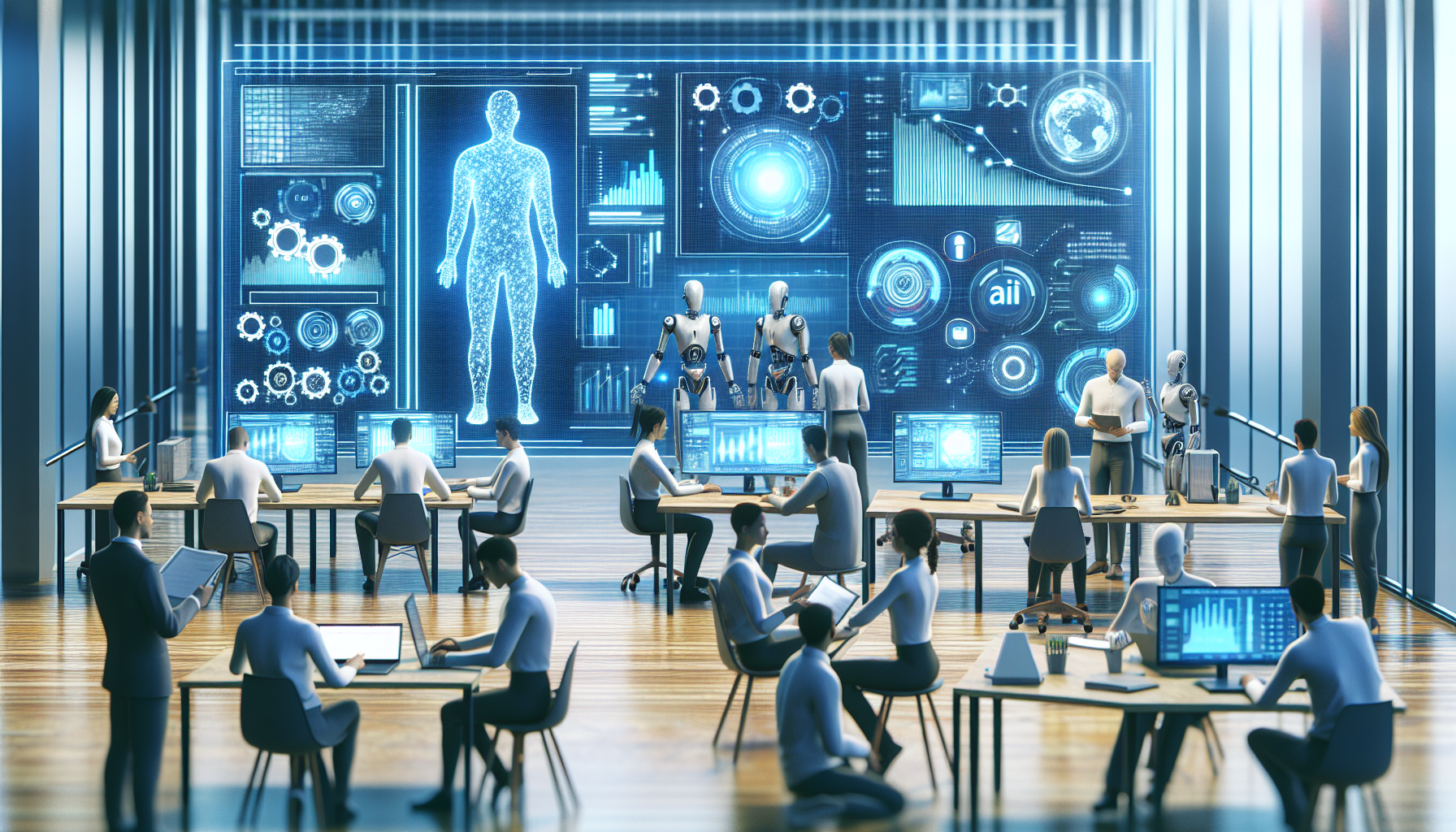
Cognitive Computing: Redefining the Boundaries of Artificial Intelligence
November 12, 2025
Artificial Intelligence has become an integral part of our daily lives, influencing everything from how businesses operate to the way we communicate. Yet, a new wave is emerging within this technological revolution—cognitive computing. This evolution is not just an advancement in AI but a transformative leap that promises to redefine the boundaries of what machines can achieve.
Imagine a world where machines not only process data but also comprehend it, contextualize it, and learn from it in a manner akin to human cognition. This is the potential of cognitive computing, a concept that extends beyond the capabilities of traditional AI. At its core, cognitive computing seeks to replicate human thought processes in a computerized model, enabling machines to solve problems in a more human-like way.
Why should we be excited about cognitive computing? For starters, it holds the promise of moving us closer to machines that can understand complex language, recognize intricate patterns, and make decisions based on nuanced human emotions. This is a stark departure from conventional AI, which typically relies on structured data and predefined algorithms. Cognitive computing, on the other hand, thrives on unstructured data, such as images, natural language, and sensory inputs, allowing it to offer insights with a depth and breadth never before seen.
Consider the healthcare industry, where cognitive computing could radically alter patient care. Currently, doctors spend countless hours sifting through medical records, research papers, and clinical trial results to make informed decisions. Cognitive systems could streamline these processes, offering comprehensive analyses by drawing from vast datasets, thereby enabling doctors to focus more on patient care. They could predict patient outcomes and recommend personalized treatment plans by understanding subtle patterns in patient data.
Moreover, cognitive computing's ability to process natural language means it could revolutionize customer service. Imagine interacting with a virtual assistant that not only understands your inquiry but anticipates your needs, offering solutions that are personalized and contextually relevant. This leap could significantly enhance customer satisfaction across various industries, from retail to telecommunications.
However, as with any paradigm shift, cognitive computing is not without its challenges. The complexity of human cognition is immense, and replicating it even partially requires overcoming significant technical hurdles. Questions of ethics and privacy also loom large. As machines become more adept at interpreting human emotions and behaviors, how do we ensure that such data is used responsibly? The potential for misuse is considerable, necessitating robust frameworks to govern the deployment of cognitive systems.
Despite these challenges, dismissing cognitive computing as mere futurism is shortsighted. The possibilities it presents are too significant to ignore. Industries that embrace this technology stand to gain a competitive edge, while those that don't risk falling behind. This is not just another industrial revolution; it is the dawn of a new era in human-machine collaboration.
The broader implications of cognitive computing extend to the very nature of work and creativity. As machines take on more complex tasks, humans will be free to focus on higher-level cognitive functions, such as strategic thinking and creative problem-solving. This shift could lead to an unprecedented unleashing of human potential, as mundane tasks are increasingly automated.
Yet, as we stand on the brink of this new frontier, we must ask ourselves: Are we ready? Are our institutions prepared to adapt to the changes cognitive computing will bring? Are we equipped to address the ethical and privacy concerns that will inevitably arise?
Cognitive computing is not just about enhancing machines; it's about enhancing humanity. It challenges us to rethink our relationship with technology and to harness it in ways that benefit society as a whole. As we continue to explore the vast potential of this technology, let us do so with a commitment to innovation, responsibility, and inclusivity.
In embracing cognitive computing, we are not merely building smarter machines; we are building a smarter future. A future where technology augments human capabilities rather than replaces them. The journey may be complex, but the destination holds the promise of a more insightful and interconnected world. Will we rise to the occasion and shape this future wisely? The answer depends on our vision, our courage, and our resolve to navigate this uncharted territory with foresight and integrity.


